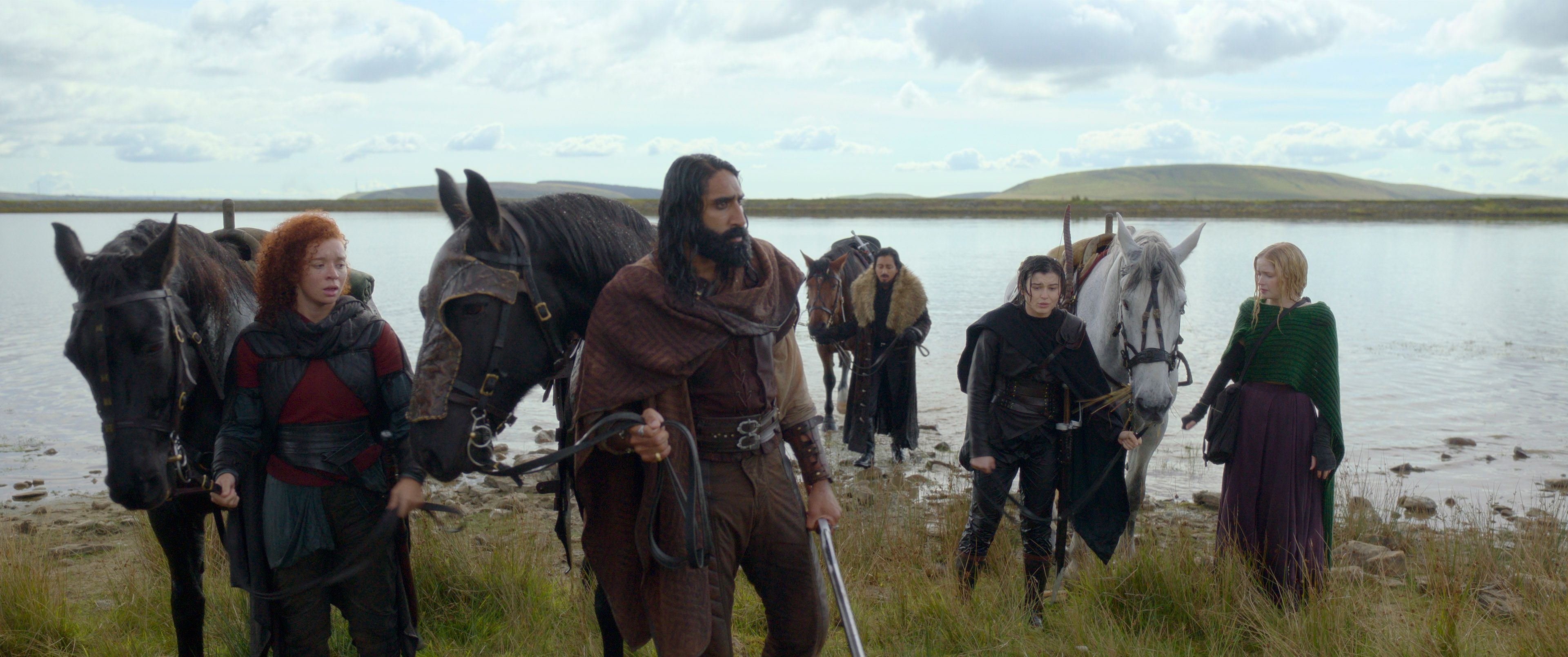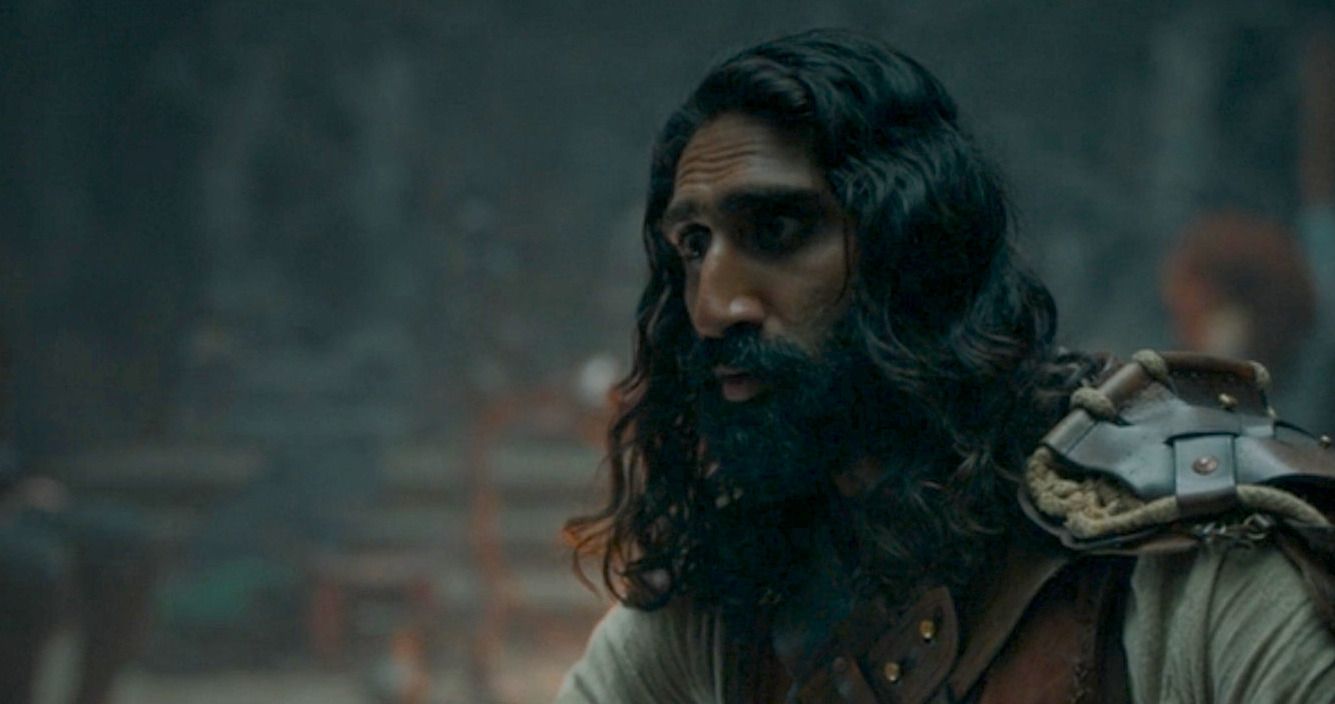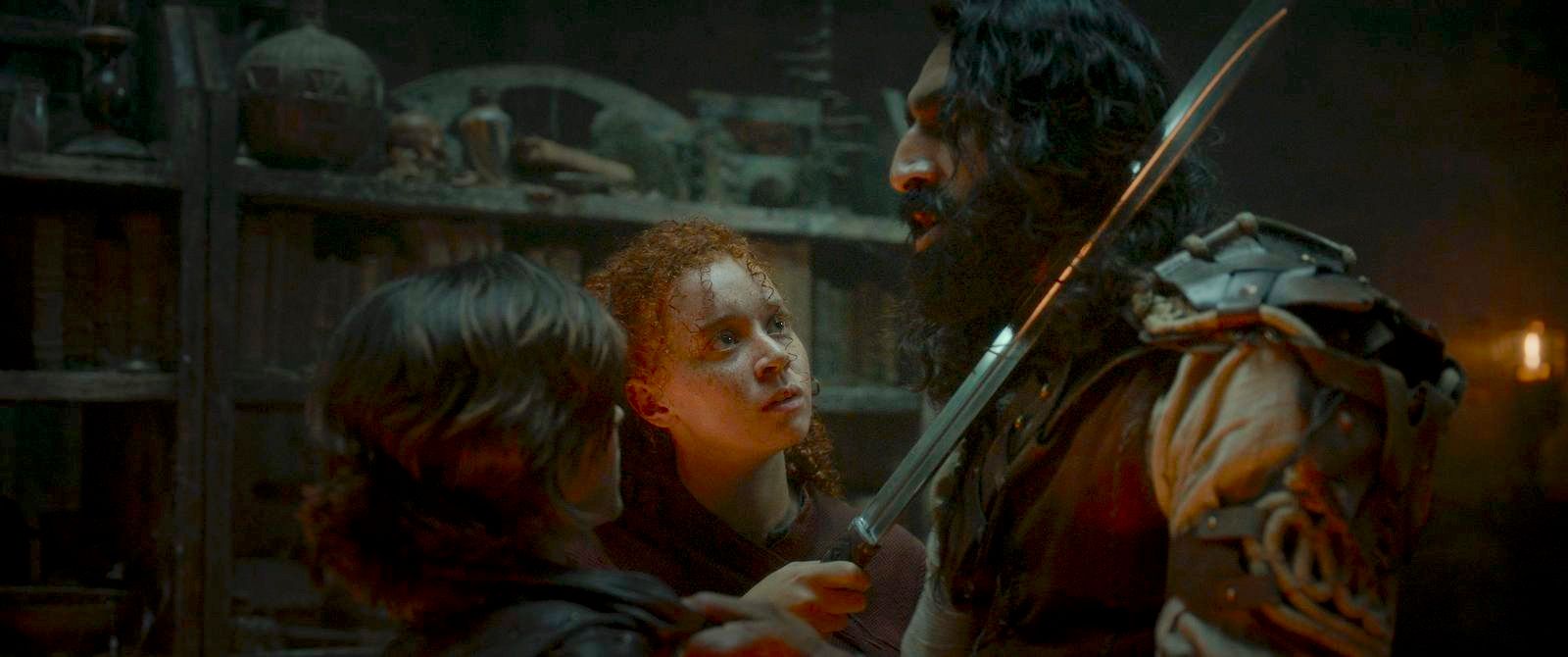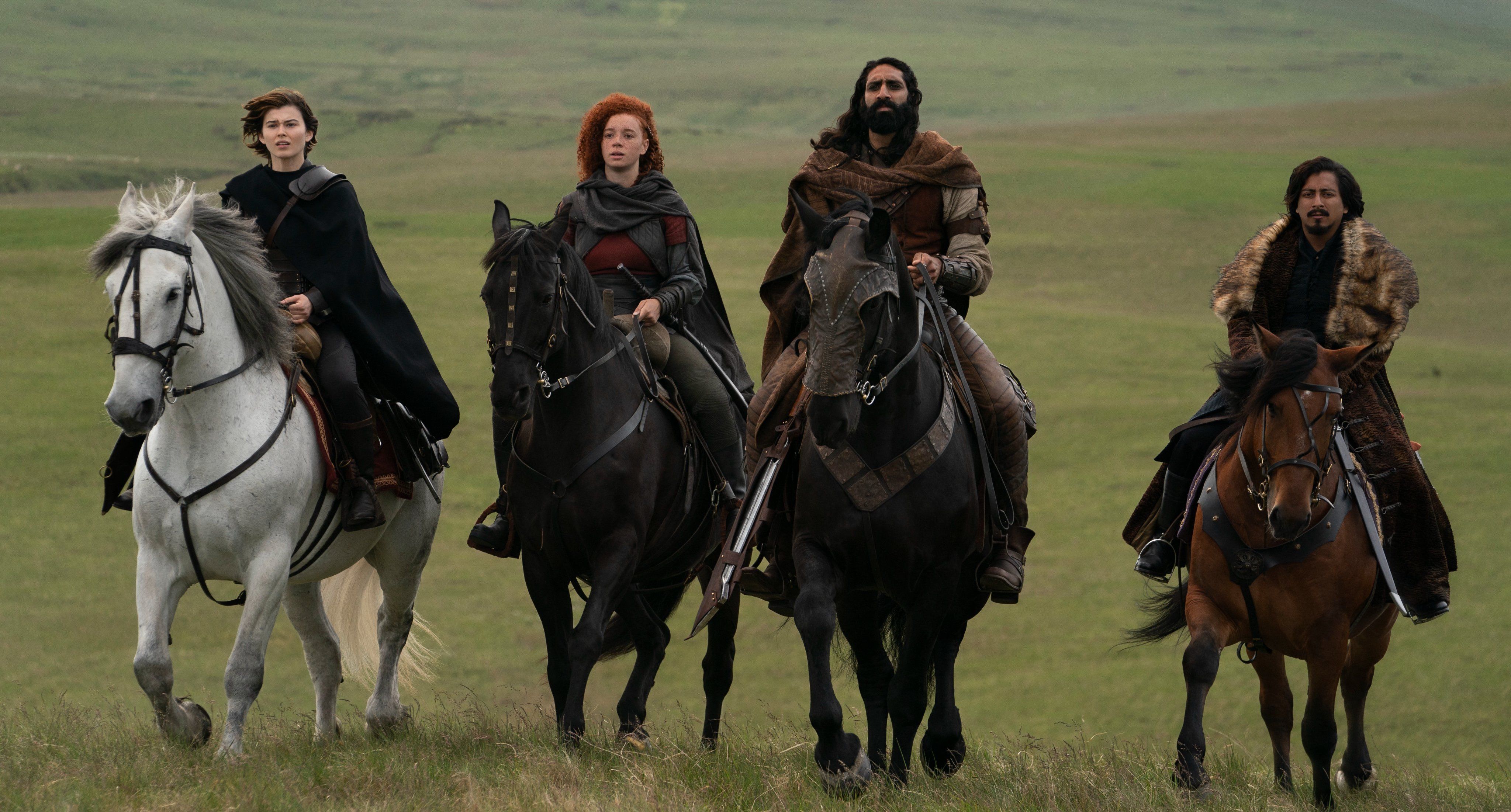Editor’s note: The below contains spoilers for Willow.
Of all the fantasy shows to air on television this year, from Game of Thrones spinoffs to Lord of the Rings prequels, none are perhaps more archetypal than Willow, the sequel series that spawned from one of the trope-iest fantasy films of the 1980s. And I don’t say that without affection — my Letterboxd betrays how many times I’ve watched that film this year — especially not when Willow turned out to be one of the best shows of the year. When it comes to fantasy, archetypes are where the genre flourishes, especially when shows are able to go beyond the basics and turn those concepts into something intriguing.
So, when you’ve got a cast of characters like Willow’s — one that looks like someone’s dream D&D party come to life — two things are always true. One: most characters will fit (at least loosely) into some kind of general character type, whether that’s the knight, the princess, the magician, or the chosen one. (All of which feature in Willow’s party, and then some.) Two: because of these loose archetypes, fans and audiences will inevitably always be drawn to a particular character that fits their preferred archetype.
For me, that archetype is by and large the warriors — the ones who are always hiding a heart of gold under a layer of gruffness and a couple of swords, the muscle that exists to kick ass and throw out fun one-liners. If you know me, you know I love a good bit of snark, and I love a good fight scene. It’s part of what drew me into the original Willow in the first place, coupled with a love for Val Kilmer established in childhood, on one too many viewings of Batman Forever and The Prince of Egypt. The combination of humor and competency never fails to reel me in, and more often than not, my favorite character is usually one that fits broadly into that category. (See also: Frank Castle, Diana Prince, etc.)
The ‘Willow’ Series Had to Establish a Warrior of Its Own
For Willow, it almost feels inevitable that they’d have to have a warrior of their own, given the expectations set by the original film. Madmartigan, colloquially called the “greatest swordsman who ever lived,” is a key part of that story, and while princess Kit (Ruby Cruz) and her loyal knight Jade (Erin Kellyman) are more than capable of taking care of themselves, the new party needs someone to carry the rest of the weight. It needs its rebel — its Han Solo, if we’re using Lucasfilm terms — and the series finds that in Thraxus Boorman (Amar Chadha-Patel), the former squire of Madmartigan tasked with joining the party (against his will) by Sorsha.
Boorman — who I recently learned is named after the director of the fantasy epic Excalibur, thanks to sound designer David W. Collins — is everything you’d want in a fantasy warrior. Tall, dark, and handsome, with a whip-smart sense of humor and a truly massive sword that he certainly knows how to use. (No, that’s not a euphemism. Get your head out of the dungeon.) He fits perfectly with the Aragorns and the Madmartigans of quests gone by, and rounds out Willow’s unconventional party as the literal rebel without a cause — he has no emotional investment in this quest other than his crimes being pardoned by the queen. But with Madmartigan’s absence hanging heavy over the series (both for plot and nostalgia reasons), how do you balance a new character that fits the same archetype without doing away with the old one entirely?
‘Willow’ Successfully Introduces Boorman Without Replacing Val Kilmer’s Madmartigan
It’s a difficult challenge, something legacy sequels have faced in excess this year. From Top Gun: Maverick to National Treasure: Edge of History, franchises are faced with filling in for legacy characters that can’t appear for one reason or another. For Kilmer’s Madmartigan, it was the star’s ongoing health problems that ultimately prevented him from appearing, forcing them to find ways around his presence while still addressing his impact — after all, his children lie at the center of the story as much as Willow does.
But, to its advantage, at no point does Willow simply try to posit Boorman as a replacement for Madmartigan, a filler until he eventually returns or winds up dead. Willow avoids the trap of the carbon-copy sequel character in a way that very few legacy sequels have ever managed, turning what could have become a copy-and-paste side character into a charismatic fan-favorite, a man with a complex past who’s just as good at charming the pants off the audience and his fellow party members as he is at fighting the Gales.
A large portion of the character’s success can be attributed to just that: Chadha-Patel is consistently the most charming person in the room (or forest, or cursed castle) no matter what he’s doing. He matches Kilmer’s energy from the film seemingly without even trying — he’s just That Much Fun — and provides a large portion of the series’ offbeat humor, much of which comes in the form of situational quips or his general “I’m too old for these kids’ shit” attitude. (To be fair: I would also feel that way, and I’m the same age as most of the cast.)
His energy is infectious, the kind of welcome respite from existential dread that makes family-friendly fantasy appealing in the first place. I’ve called the series “compulsively watchable” before, and I would offer the same phrase to Chadha-Patel’s performance specifically. He’s always on the top of his game, and he knows how to command a scene, even if he’s just chucking one-liners from the background while someone’s being exorcized at the forefront. (Sorry Graydon.)
And credit must go where credit is due for giving him more to do than simply stand around, toss out barbs, and look pretty. Luckily, and perhaps the best thing the series manages in relation to his character, Boorman isn’t saddled with dialogue or an arc that’s just a copy-paste of Madmartigan’s with the serial numbers shaved off. Unlike Lucasfilm’s other projects (notably the Star Wars sequel trilogy) or other Disney+ sequels, Willow isn’t telling the same story in a slightly different font, with identical character archetypes lifted from the original film. While many elements remain the same — looking at you, Willow and Elora — the dynamic has shifted, opening up opportunities to create new types of stories, and new types of characters.
‘Willow’ Allows Its Old Story to Influence the Sequel Series for the Better
It’s clear that, as Madmartigan’s squire, the greatest swordsman who ever lived did have some amount of influence on Boorman. Anyone with a longtime friend, coworker, or family member they’ve spent a long time around knows that extended exposure to someone’s personality does eventually lead to parts of it bleeding into your own — you pick up phrases, gestures, even entire habits of theirs just from being around them, absorbing them into yourself. This phenomenon is entirely true of Boorman, whose gruffness and sense of humor harken back to that great warrior Willow found in a cage on the side of the road.
But at no point is he just a hollow imitation of Kilmer’s work, both from a writing and a performance standpoint. Like every character in the series, Boorman arrives with a backstory and a weight to him that, despite Kilmer’s swoonworthy performance, Madmartigan wasn’t given in the original film. Because of the nature of television, Boorman feels much more lived-in, a man with a past and motivations and traumas, only some of which we get to see on screen. He remains the comic relief, as Kilmer was, but his version of things is quipper, more self-deprecating, with a type of levity that Madmartigan lacked when he spent half the film being a grump. (A lovable grump, but a grump nonetheless.)
He’s given more space to peel back that hard outer exterior to reveal the emotions underneath, whether it’s commiserating with Kit on how exhausting the rest of the party is or being able to sympathize with Jade on the struggles of being a warrior, even if his experiences aren’t entirely the same. His relationship with the bone reaver Scorpia (Adwoa Aboah) in episode five very clearly mirrors the enemies-to-lovers arc of Madmartigan and Sorsha (we love a woman who isn’t afraid to bully her boyfriend a little), but as an established pair, it’s not meant to be the same kind of b-plot. Instead, it’s one piece of the much larger jigsaw puzzle that is his existence — one that, the more pieces you get, the more you’re dying to see the big picture.
While the entire cast knocks it out of the park with their performances, Chadha-Patel gives perhaps the most complex and entertaining of the entire show, next only to Warwick Davis — and that’s saying something, considering Davis has had nearly thirty-five years to live with Willow Ufgood. He spends a large portion of the series without an emotional grounding point (note that his hallucination in the haunted Nockmaar Castle is the loss of an item, unlike everyone else), but is not robbed of the chance to have his own “side quest,” so to speak. Sure, it’s not as noble as training to become a sorceress like Elora (Ellie Bamber) or rescuing a sibling like Kit, but where many fantasy shows struggle with a too-large cast, leaving some members in the dust, Willow manages to give us the perfect example of a compelling scoundrel almost without any effort.
‘Willow’ Also Addresses Val Kilmer’s Absence in Thoughtful Ways
It also helps that the series takes great pains to address Boorman’s predecessor directly, as opposed to name-dropping him here and there and letting Chadha-Patel pick up the slack. Madmartigan is not just intertwined in Boorman’s history, but in everyone’s — he’s Willow’s friend, Airk’s father, the man who helped save Elora’s life all those years ago. He’s the direct source of the abandonment issues Kit struggles with for the entire series, and his name is more than just a buzzword — he’s a fundamental building block of the show’s world, which speaks volumes to how much its creators care for their source material.
That care is all the more obvious now that Willow has a release day buddy in National Treasure: Edge of History, a show that also serves as a legacy sequel to a beloved franchise. Both have the same “issue” (for lack of a better word) of an original character not returning — for Willow, it’s Madmartigan, and for Edge of History, Nicolas Cage’s Ben Gates — but approach it in wildly different ways. Willow’s careful handling of both Boorman and Madmartigan/Kilmer’s legacies is made even stronger by the awkward way Edge of History name-drops Ben Gates as though he’s always just off-screen, but has no real impact on the story. Recognition of a character’s impact must come in more than simply acknowledging they exist, particularly in a world as complex as Willow’s, where your actions affect the fate of you and those around you more than destiny ever could.
When I spoke to creator Jon Kasdan about the series, he called it a “great gift” to have legacy characters woven into the fabric of the story, and the way Willow handles its warriors makes me honestly believe him. Kasdan and the entire production team have managed to find a balance between integrating Madmartigan into their new warrior’s history without overshadowing one or the other, and the story they’ve created feels as natural as though it were real. (And honestly, as someone who grew up on the kind of sincere fantasy Willow offers: I kind of wish it was.)
Much in the same way that both Willow and Sorsha have changed and evolved over the twenty-some years between the film and the series, Madmartigan’s legacy has shifted and grown, as have the rules of filmmaking and storytelling. (Just look at that improvement in visual effects.) Willow is a story for a modern audience, with modern characters — Boorman included — and it knows it. It isn’t trying to be House of the Dragon, nor is it trying to exactly recreate the movie. It simply exists as a beacon of hope, with a self-awareness that bleeds into its characters — the kind that makes them so undeniably lovable that it’s difficult not to metaphorically rewind as soon as the tape is finished, just to see them do it all over again.
New episodes of Willow premiere every Wednesday on Disney+.




